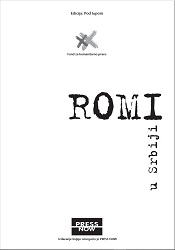
ROMA In Serbia
ROMI u Srbiji
Keywords: Roma in Serbia; Roma; Serbia; Discrimination; Victims of police; Racist attacks;
More...
Keywords: Roma in Serbia; Roma; Serbia; Discrimination; Victims of police; Racist attacks;
More...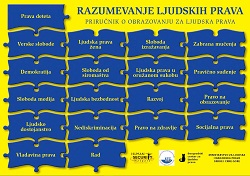
Keywords: Teaching Human Rights; Human rights; political culture;
Published in 2005 by the Ministry of Human and Minority Rights of Serbia and Montenegro, elaborated by the Humantarian Lac Center, Belgrade.
More...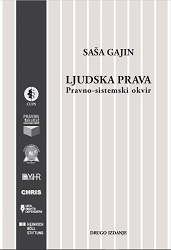
Keywords: Human Rights in the legal system;European Convention on Human Rights; Johna Lock;Thomas Hobbes;Habermas; Dworkin;constitutional democracy;
The legal-systemic framework of respect and protection of human rights can theoretically be built on three different levels of reflection of legal rules on the rights and freedoms of individuals. First, by defining the legal concept of human rights, it is possible to provide a unique answer to the question of what human rights are. Second, based on a comprehensive body of human rights rules, it is possible to theoretically determine the content of human rights law. Third, it is possible to show that human rights are a necessary integral and constitutive part of the legal order and thus legally establish them … In that sense, the question should be answered as to whether human rights are a necessary part of the law itself, i.e., whether it arises together with the law. In addition, an answer should be sought to the question of whether the existence of the legal order is conditioned by the existence of legal rules on human rights and freedoms, or whether it can still be theoretically conceived without human rights. The answers to these questions provide a legal basis for human rights.
More...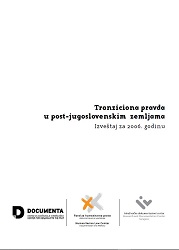
Keywords: Transitional justice; Post-Yugoslavia; facing the past;War crimes trials;The Hague Tribunal;Missing Persons;Lustracija; Reparacije
In the armed conflicts in Croatia (1991-95), Bosnia and Herzegovina (1992-95), and Kosovo (1998-99), at least 130,000 people lost their lives, millions were forced to flee their homes, and hundreds of thousands of houses were destroyed. The transition from a state of armed conflict and state repression to a period of peace and the building of democratic institutions requires these societies to decide on mass human rights violations from the recent past. The set of measures taken by the authorities and civil society to address these violations of rights constitutes a complex of transitional justice, the basic elements of which are fact-finding, trials, reparations, and institutional reform (lustration). This report deals with the consequences of the war and the crimes committed between 1991 and 1999. The report was initiated by the Humanitarian Law Center (HLC), in cooperation with the Research and Documentation Center (IDC-BiH) and Document (Croatia). It refers to Bosnia and Herzegovina, Croatia, Serbia, Kosovo, and Montenegro - hereinafter referred to as "post-Yugoslav countries".
More...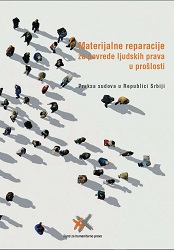
Keywords: Reparations; Yugoslav Wars;post-conflict countries;Court practice;Human right, law;Reparations;
Reparations are measures applied by post-conflict societies to redress various types of damage suffered by victims as a result of certain crimes committed by the previous government and its institutions. The goal of reparations is justice for the victims. For a large number of victims, reparations are the most tangible manifestation of society's efforts to repair the damage they have suffered. Reparations are divided into material and symbolic. They can be individual or collective. They are realized directly on the basis of law (administratively) or through the courts. In this report, we talk about obtaining material reparations through the courts, reviewing legal regulations and the conduct of courts in cases initiated by the Humanitarian Law Center (HLC).
More...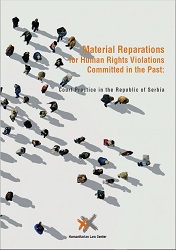
Keywords: Reparations; Yugoslav Wars;Human Rights;post-conflict societies;War Crimes;Crimes against humanity;
Reparations are measures applied by post-conflict societies to redress various types of damage suffered by victims as a result of certain crimes committed by the previous government and its institutions. The goal of reparations is justice for the victims. For a large number of victims, reparations are the most tangible manifestation of society's efforts to repair the damage they have suffered. Reparations are divided into material and symbolic. They can be individual or collective. They are realized directly on the basis of law (administratively) or through the courts. In this report, we talk about obtaining material reparations through the courts, reviewing legal regulations and the conduct of courts in cases initiated by the Humanitarian Law Center (HLC).
More...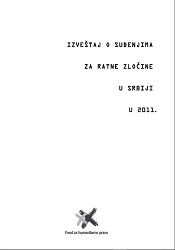
Keywords: War Crime Trials in Serbia;
In 2011, the War Crimes Prosecutor's Office of the Republic of Serbia (TRZ) filed indictments against a total of nine persons, all for the criminal offense of War Crimes against Civilians under Art. 142 paragraph 1 of the FRY CC. // In 2011, 13 proceedings were conducted before the War Crimes Chamber of the High Court in Belgrade. Of these, the War Crimes Chamber handed down verdicts in six cases, convicting 17 defendants and acquitting two of them, and the remaining seven proceedings are still pending. // In 2011, the War Crimes Chamber of the Court of Appeals in Belgrade issued 11 decisions on appeals against the verdicts of the War Crimes Chamber of the Belgrade High Court, which convicted 12 defendants and overturned the first instance verdicts and returned the cases. on retrial. // In 2011, before the courts of general jurisdiction, two proceedings were conducted for the criminal offense of War Crimes against Civilians under Article 142, Paragraph 1 of the FRY Criminal Code - Kushnin / Kushnin case before the Higher Court in Nis, Orahovac / Rahovec case before The High Court in Pozarevac, and two proceedings for ethnically motivated murders. The case of Oto Palinkaš et al. Was conducted before the High Court in Kraljevo, and the case for ethnically motivated murder in the Emini case was conducted before the High Court in Niš. // Humanitarian Law Center (HLC), in 2011 represented the victims in four cases before the War Crimes Chamber of the High Court in Belgrade - Ćuška / Qushk, Skočić, Zvornik III / IV and Lovas, while HLC observers monitored the main hearings in other proceedings before this court, as well as the main trial in the Kushnin case.
More...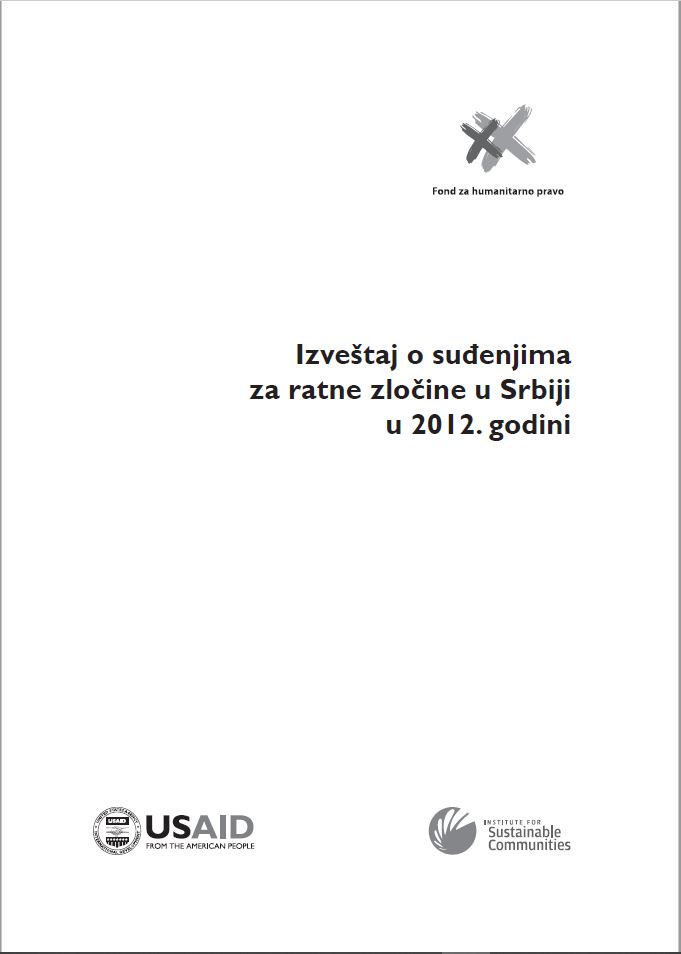
Keywords: War Crime Trials in Serbia;
In 2012, 13 proceedings were conducted before the High Court in Belgrade (War Crimes Chamber). The High Court handed down verdicts in seven cases1 in which 37 defendants were convicted and eight defendants acquitted, while the remaining six proceedings are still pending. // In 2012, the Court of Appeals in Belgrade (War Crimes Chamber) rendered four decisions on appeals against the judgments of the Belgrade High Court and the Belgrade Court of Appeals, which convicted four defendants3 and acquitted two defendants. // In 2012, two war crimes proceedings against civilians were conducted before courts of general jurisdiction - the Orahovac/Rahovec case before the Požarevac High Court and the Kushnin case before the Niš High Court. The procedure against Miloš Lukić for the crime of murder is underway before the High Court in Prokuplje. // In 2012, the OWCP filed indictments against a total of seven persons for the criminal offense of War Crimes against Civilians and / or for the criminal offense of War Crimes against Prisoners of War. In 2012, the HLC represented the victims in four cases before the War Crimes Chamber of the Belgrade High Court - Ćuška / Qushk, Skočić, Lovas and Tenja II, while HLC observers monitored the main hearings in other proceedings before this court, as well as main hearings in cases before the courts of general jurisdiction - Rahovec / Orahovac, Kušnin/Kushnin i Miloš Lukić.
More...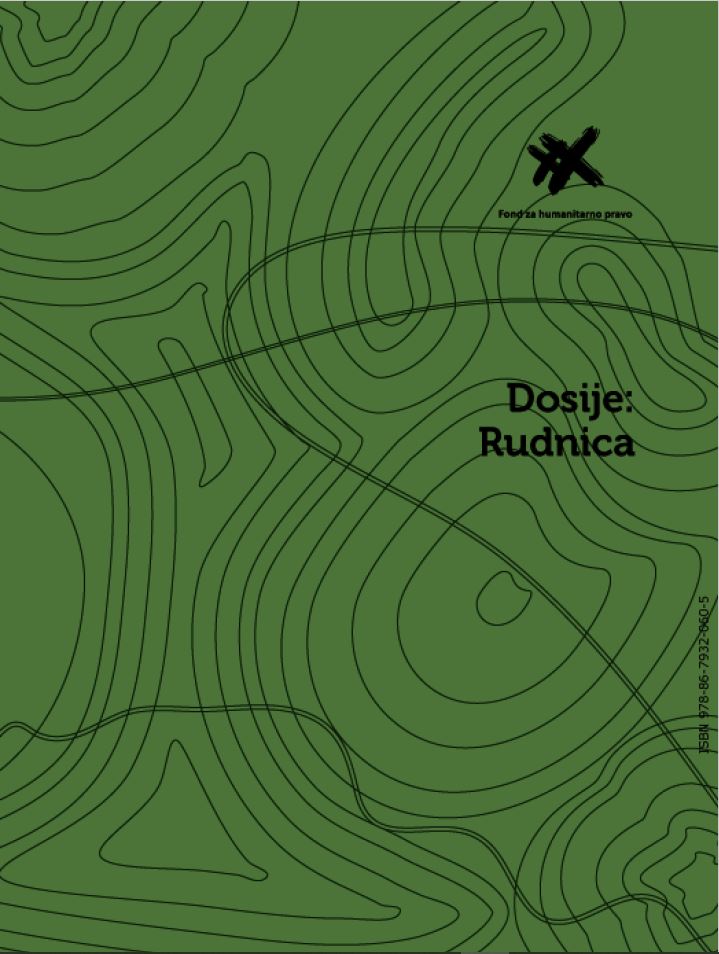
Keywords: mass-graves; ex-humation;facing the past;mass graves; Exhumation and identification of bodies; Crimes against civilians;
The mass grave in Rudnica is the first mass grave in Serbia to be discovered since the end of the ICTY's mandate to investigate crimes in the former Yugoslavia. Three mass graves with the bodies of 889 Kosovo Albanians, mostly civilians, were discovered in the spring of 2001 at three locations in Serbia - in the Belgrade suburb of Batajnica, in Petrovo Selo (eastern Serbia) and near Lake Perucac (western Serbia). In the Sainovic et al. and Djordjevic cases, the ICTY established facts about the circumstances of the killings of most civilians whose remains were exhumed from these three locations. According to ICTY verdicts, these crimes were committed as part of a joint criminal enterprise aimed at establishing effective control of the Serbian authorities over Kosovo by changing the ethnic balance and expelling Albanians from Kosovo. Also, the ICTY found that the key role in transporting and hiding corpses in the mentioned graves was played by the MUP, and that the VJ independently, or in cooperation with the MUP, participated in the collection of corpses in the field. // As no evidence has been presented to the ICTY on the crimes in which civilians found in Rudnica were killed, nor on the circumstances in which their bodies were hidden, the aim of this dossier is to make public information and evidence on the responsibility of VJ and MUP members for killing Kosovo Albanians whose remains were found in Rudnica, as well as data and evidence that indicate the participants in the operation of moving and hiding their bodies in a secret location. // The data used to create this dossier come from two basic sources. The first source is witnesses - survivors, family members of victims and eyewitnesses of crimes who gave statements to the HLC and the HLC Kosovo about the events that preceded the crimes, the circumstances of the crime, the perpetrators, their uniforms, weapons, equipment, removal of victims, etc. Another source is authentic military and police documents presented in the form of evidence in the two mentioned cases before the ICTY.3 These are orders for combat operations, defense, combat control of the territory, "rehabilitation of the battlefield", regular combat reports, control of movements within a certain area, the census of civilians, the deployment of police units in the area, etc. In addition to official documents of the VJ and MUP, the file relies on the testimony of VJ officers and MUP officials before the ICTY, Ministry of Defense newspaper - magazine " Army ", geographical maps and other sources.
More...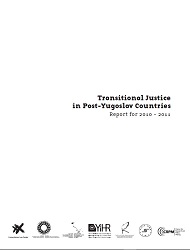
Keywords: War Crim Trials;Transitional Justice;Post-Yugoslav Countries;Human rights;Reparations;Institutional Reforms;Lustration;Civil society;Truth commissions;Refugees;Memorials;
Investigations prepared and initiated by the Office of the War Crimes Prosecutor of the Republic of Serbia (OWCP) last a long time, and in a significant number of cases, do not result in indictments. The OWCP undertook preliminary actions in the case of mass crimes committed in the Dubrava Penitentiary in 2008; however, by the end of 2011, it still had not started an investigation. With regard to the criminal complaint filed by the HLC against the Commander of the Tenth Anti-Sabotage Detachment of the Republic of Srpska Army, Milorad Pelemiš, dating from August 2010, the OWCP publicly announced the initiation of criminal proceedings, but this still had not happened by the end of 2011. // During the year 2011, the OWCP indicted only nine persons, and only one of these indictments (charging three persons) is filed in a new case, while the indictments against six of the other persons emerged from earlier proceedings held before the Higher Court in Belgrade War Crimes Department. In cases of war crimes committed in Kosovo, the OWCP often files indictments on the basis of partial investigations, as happened in the Suva Reka/Suhareke and Ćuška/Qushk Cases...
More...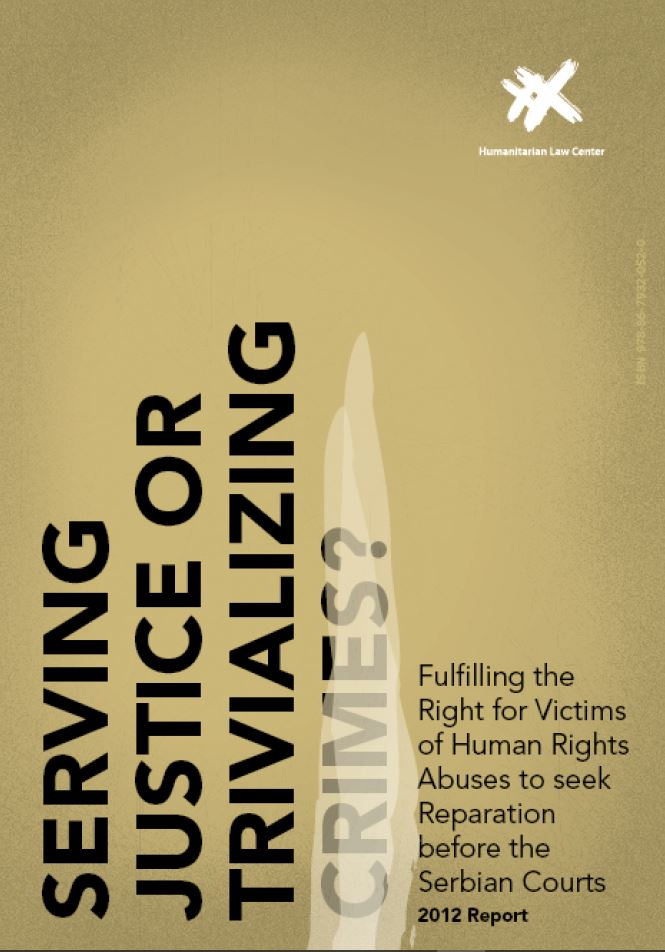
Keywords: Reparations;Humanitarian Law;Victims;war crimes in Yugoslavia;
The obligation of the State to provide adequate financial redress to victims of human rights abuses is defined in numerous international conventions on human rights and is derived from the fundamental legal principle of accepting responsibility for harm done. In most societies that have gone through periods of massive human rights violations, the issue of financial reparations for victims is one of the most important elements of establishing the rule of law and providing justice for crimes committed in the past. Identification of victims, creation of programs suitable for the needs of victims, and ways in which those programs are financed are just a few of the important issues considered by post-conflict societies in their overall effort to provide reparations to victims of human rights violations. // This Report offers a review of 15 cases in which HLC represented victims and which resulted in court decisions in 2012. There were a total of 18 judgments, 12 of which were negative and six positive, which awarded a total of RSD 1.76 million to victims of human rights abuses.
More...
Keywords: war crime trials;War Crime Trials in Serbia;
In 2013, 12 proceedings were conducted before the War Crimes Chamber of the High Court in Belgrade (High Court Division). First instance verdicts were passed in seven cases, finding 13 people guilty and one person acquitted. One verdict relates to the acceptance of the Agreement on the Recognition of the Criminal Offense of War Crimes against Civilians between the Defendant and the War Crimes Prosecutor's Office (TRZ). In five cases, the first-instance procedure was not completed by the end of 2013. // In 2013, two war crimes trials were conducted before the courts of general jurisdiction - the Orahovac / Rahovec case before the Požarevac High Court, in which a first instance verdict was rendered, and the Kushnin / Kushnin case, which is on appeal. before the Court of Appeals in Nis. The proceedings against Miloš Lukić are underway before the higher court in Prokuplje for the criminal offense of murder, which according to the characteristics of the case is a war crime against the civilian population.
More...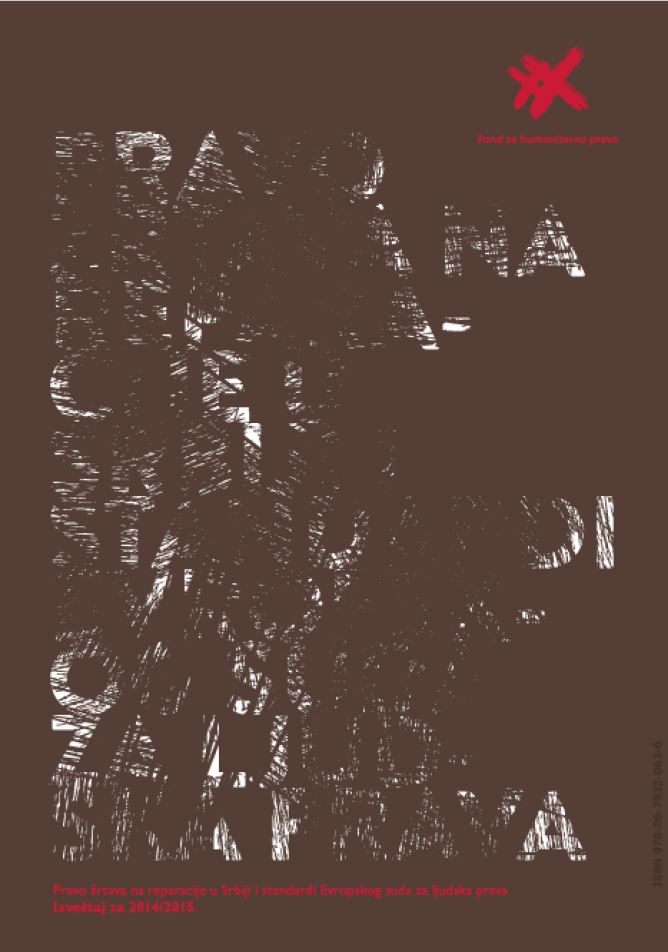
Keywords: reparations rights;
For societies that have gone through periods of human rights mass violations, the issue of reparations to victims is one of the most important elements in establishing the rule of law in relation to crimes committed, as well as building solidarity and a culture of human rights. The report provides an overview of legal norms relevant to the exercise of the right to reparations and their application in practice before courts and administrative bodies in Serbia, as well as their analysis in the light of the standards of the European Court of Human Rights. The key finding of the report is that judicial and administrative bodies in Serbia violate the right of victims to reparations and that the decisions of these bodies in reparation proceedings violate the rights guaranteed by the European Convention on Human Rights, especially the prohibition of torture, degrading treatment and humiliation. the right to a fair trial and non-discrimination. The disrespect of the European Convention on Human Rights by the judicial and administrative authorities in Serbia, when it comes to victims of serious human rights violations, makes their right to reparations in Serbia in practice impossible and almost illusory.
More...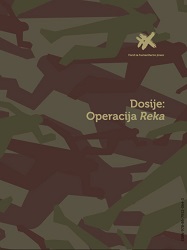
Keywords: Reka; Kosova war; mass grave;CRIMES AGAINST HUMANITY;International Criminal Tribunal for the former Yugoslavia;crimes against civilians;Kosovo;
On 27 and 28 April 1999, a large-scale joint operation by the Yugoslav Army (VJ) and the Ministry of the Interior (MUP) called »Operation Reka« was conducted in villages west of the town of Gjakova in Kosovo. During the operation, Serb forces killed at least 350 Kosovo Albanian civilians and expelled several thousand to Albania. The bodies of 309 killed were found in 2001 in secret mass graves on the outskirts of Belgrade. The attack by Serb forces on the civilian population in the Reka Valley is the most serious crime committed against civilians during the Kosovo war and one of the largest in the wars in the former Yugoslavia in the 1990s. The dossier points in more detail to the evidence on the role of Momir Stojanović, the current member of the National Assembly of the Republic of Serbia and the chairman of the parliamentary Committee for the Control of Security Services, in Operation Reka. In March 2015, Interpol issued a warrant for Stojanović and 16 other people, at the request of the United Nations Interim Administration Mission in Kosovo (UNMIK), for crimes committed in this operation.
More...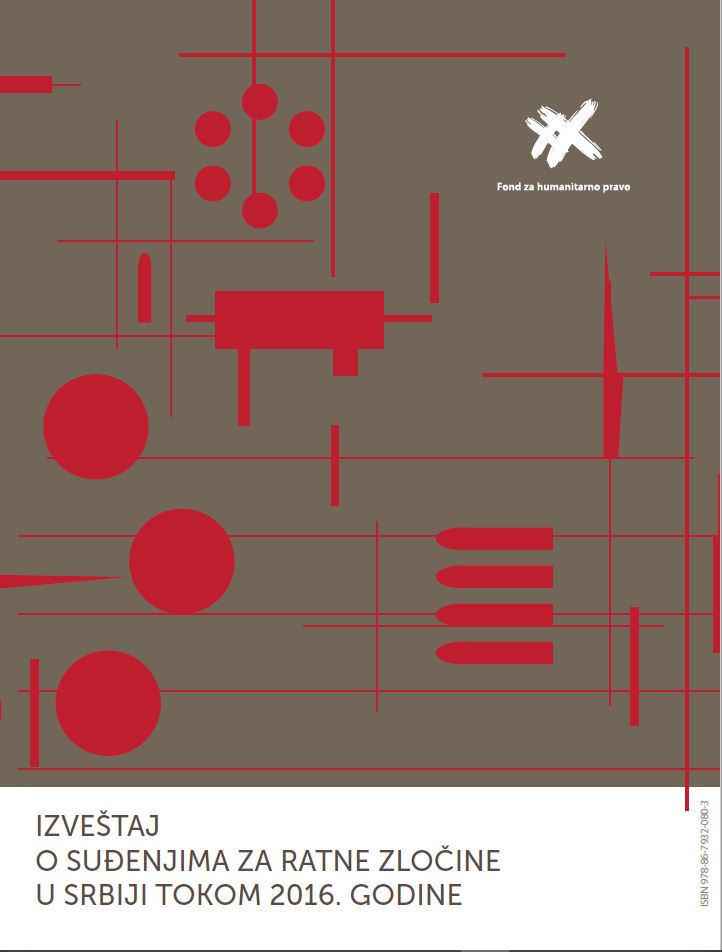
Keywords: War Crimes Trials; facing the past;
This is the sixth report of the Humanitarian Law Center (HLC) on war crimes trials in Serbia. During 2016, the HLC legal team monitored all war crimes trials conducted on the territory of Serbia, ie a total of 26 cases before the war crimes departments of the Higher and Appellate Courts in Belgrade, as well as before courts of general jurisdiction. Also, during the reporting period, HLC lawyers represented the victims in four cases before the War Crimes Chamber of the High Court in Belgrade, as well as in two appeal proceedings before the War Crimes Chamber of the Court of Appeals in Belgrade. The report pays key attention to the work of the Prosecutor's Office and courts in public parts of court proceedings, and above all to the analysis of indictments and verdicts in individual cases. The work of other bodies involved in the processing of war crimes (War Crimes Investigation Service of the Ministry of the Interior of Serbia, Protection Unit, etc.) cannot be analyzed at the level of individual cases, because there is no publicly available data.
More...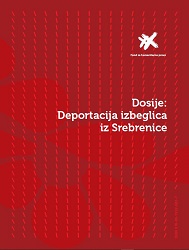
Keywords: Srebrenica; war crimes; Orahovac;refugies;war in Bosnia and Hercegovina;
After the fall of Srebrenica on July 11, 1995, an estimated 7,905 people went missing, most of them men considered "capable of military service" by the Republika Srpska Army (VRS) . DNA analysis of the remains found in mass graves has identified 5,977 to date. persons killed in Srebrenica. Most of these men were killed between 13 and 16 July 1995, mostly in mass shootings: at the Kravica warehouse (13 July: between 755 and 1,106 victims), Rahovec / Orahovac (14 July: at least 841 victims). ), at the dam in Petkovci (July 14: at least 815 victims), in Kozluk (July 16: at least 815 victims), at the Branjevo Military Farm (July 16: about 1,200 victims) and at the House of Culture in Pilica (July 16) : about 500 victims). Between 10,000 and 16,000 men fled to the forests around Srebrenica the day before the enclave fell, with the intention of gaining "free territories" under the control of the BiH Army. Search, capture and kill the remaining men lasted for weeks after the fall of Srebrenica. Some of these men crossed into the territory of the FRY. Evidence available to the public at least since 2005 shows that FRY border guards handed over every captured Srebrenica refugee man back to the VRS, contrary to Serbia's international obligations not to extradite persons to their country of origin, in this case BiH, if threatened. real danger to life and health (principle of international law known as non-refoulement).
More...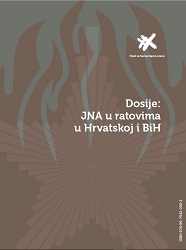
Keywords: Yugoslav National Army; Yugoslav wars;War in Bosna and Herzegovina;War in Croatia;war crimes in Yugoslavia;civilian victims;
The topic of the 10th Dossier of the Humanitarian Law Center (HLC) is the role of the Yugoslav People's Army (JNA) in the wars in Croatia and Bosnia and Herzegovina (BiH) and its transformation from a Yugoslav to a Serbian army. This is the largest HLC file to date, covering the period from the late 1980s until May 1992 and deals with the preparation of the JNA and political structures of SFRY and Serbia for wars, as well as the JNA's participation in conflicts and its contribution to the realization of war goals of the leadership of the Republic of Serbia, the Republic of Serbian Krajina and the Republic of Srpska. The Dossier lists and describes in detail examples of military actions from 1991 in which the JNA committed war crimes or prepared the ground for them to be committed by Serb units with which it worked together. Evidence was presented based on documents and witness statements about indiscriminate shelling of Croatian cities (Dubrovnik, Vukovar, Zadar, Šibenik) and attacks on Croatian territories claimed by the Serbian military, during which numerous crimes were committed against Croatian and other non-Serb civilians. occupied territory ethnically cleansed. That part of the Dossier also contains information on places of detention in Croatia and Serbia under the control of the JNA, where crimes against arrested Croats were committed.
More...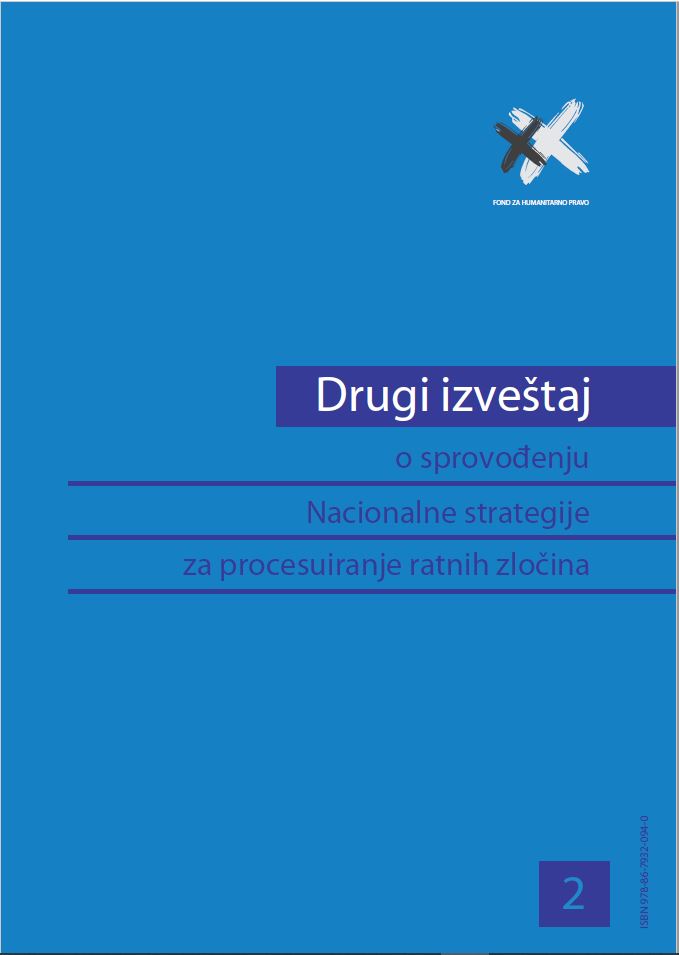
Keywords: war crimes trials;
The Humanitarian Law Center (HLC) has been monitoring and analyzing war crimes trials in Serbia since the first proceedings in the Republic of Serbia in 2002. The HLC is the only organization that does this continuously and informs the domestic and international public about it. In war crimes cases, it represents victims (injured parties) through a proxy, submits criminal charges against suspects to the War Crimes Prosecutor's Office (TRZ) and provides documentation on committed war crimes. The HLC also identifies and encourages witnesses and victims to testify in war crimes cases, thus contributing to the establishment of justice for past crimes. The National Strategy for War Crimes Prosecution (hereinafter: the National Strategy), adopted by the Government of the Republic of Serbia in February 2016, is based, inter alia, on the Strategy Model developed by the HLC. The HLC reports on the implementation of the National Strategy, with the aim of offering independent research findings and conclusions on its implementation during the period of validity of the National Strategy. This is the second such report on the implementation of the National Strategy published by the HLC. The First Report on the Implementation of the National Strategy for War Crimes Prosecution, which was presented by the HLC in December 2017, is also relevant for a complete insight into the implementation of the National Strategy so far.
More...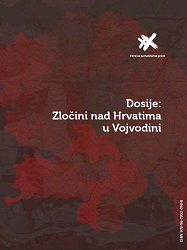
Keywords: Croats in Vojvodina;Crimes against Croats in Vojvodina;War in Croatia;
In the period from 1991 to 1995, a campaign of intimidation and pressure on Croatian civilians was conducted on the territory of the Autonomous Province of Vojvodina in the Republic of Serbia, with the aim of moving them out of their homes and leaving Serbia. The campaign, which changed in intensity and peaked in the second half of 1991, from the spring to the fall of 1992 and the summer of 1995, resulted in the expulsion of tens of thousands of Croats from Vojvodina. Violence against Croats in Vojvodina included attacks on private property and religious buildings, threats, physical attacks and killings. In the period between the two censuses, in 1991 and 2002, a decrease in the number of Croats and other non-Serbs was noticeable on the territory of Vojvodina. The number of Croats decreased in 39 out of 45 municipalities in Vojvodina, and on the territory of the whole of Vojvodina, the number of Croats decreased by 18,262, ie by 24.41%. This Dossier presents evidence of events in the municipalities of Vojvodina (Ruma, Sid, Stara Pazova, Indjija, Petrovaradin and Apatin) in which the pressure on Croats to emigrate was strongest and in which the ethnic picture changed the most. The dossier is based on statements by witnesses and families of victims given to the Humanitarian Law Center (HLC), documents of the Serbian RDB, court rulings in Serbia, documents presented to the ICTY as evidence and media reports.
More...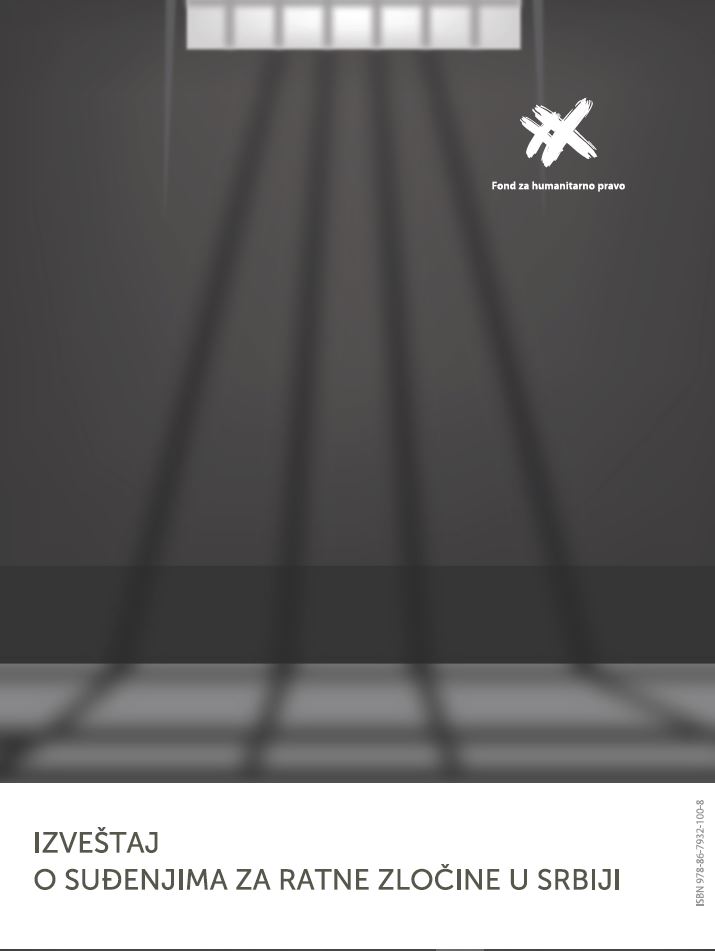
Keywords: war crime trials; War Crime Trials in Serbia; facing the past;
During 2017 and 2018, the HLC monitored all war crimes trials that took place on the territory of Serbia, ie a total of 20 cases before the war crimes departments of the Higher and Appellate Courts in Belgrade, as well as one case before a court of general jurisdiction. For all cases, the report provides brief overviews of the proceedings and the HLC's main findings in relation to the case, which are important to the public. A large number of war crimes proceedings processed in this report have been going on for several years, and previous HLC annual reports on trials are relevant for a complete insight into the course of proceedings and findings related to these cases. The report also includes the trial for one crime that the competent prosecutor's office of general jurisdiction did not qualify as a war crime, although all the circumstances of that case indicate that it is a war crime. The report pays key attention to the work of the War Crimes Prosecutor's Office (TRZ) and courts in public parts of court proceedings, and primarily analyzes indictments and verdicts in each individual case. The work of other bodies involved in the processing of war crimes - the War Crimes Investigation Service of the Ministry of Internal Affairs of Serbia (MUP), the Protection Unit, etc., cannot be analyzed at the level of individual cases, because there is no publicly available data.
More...